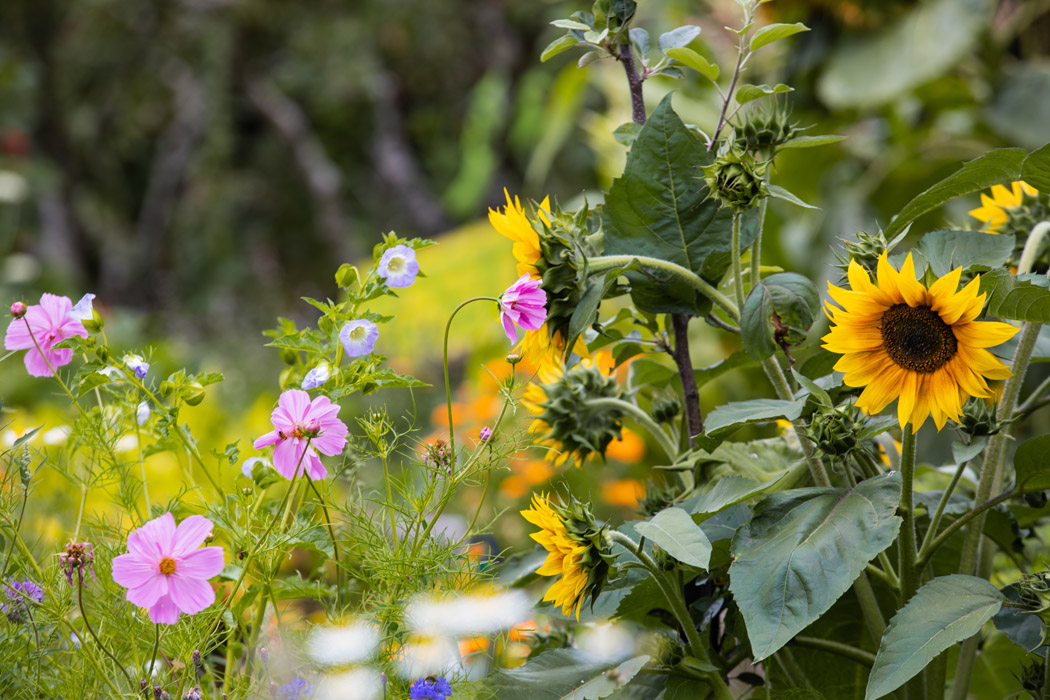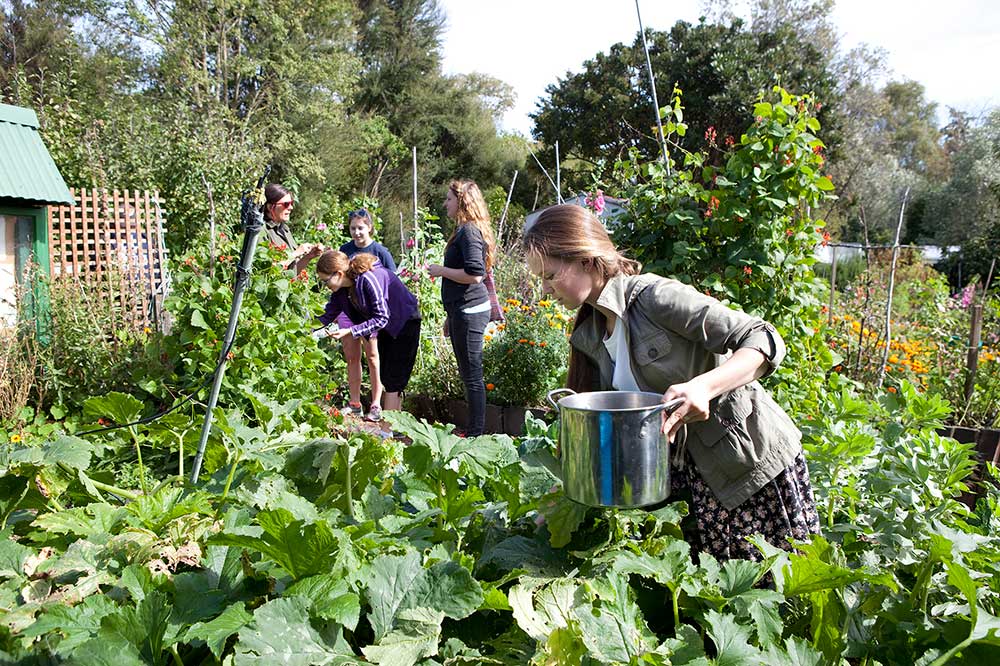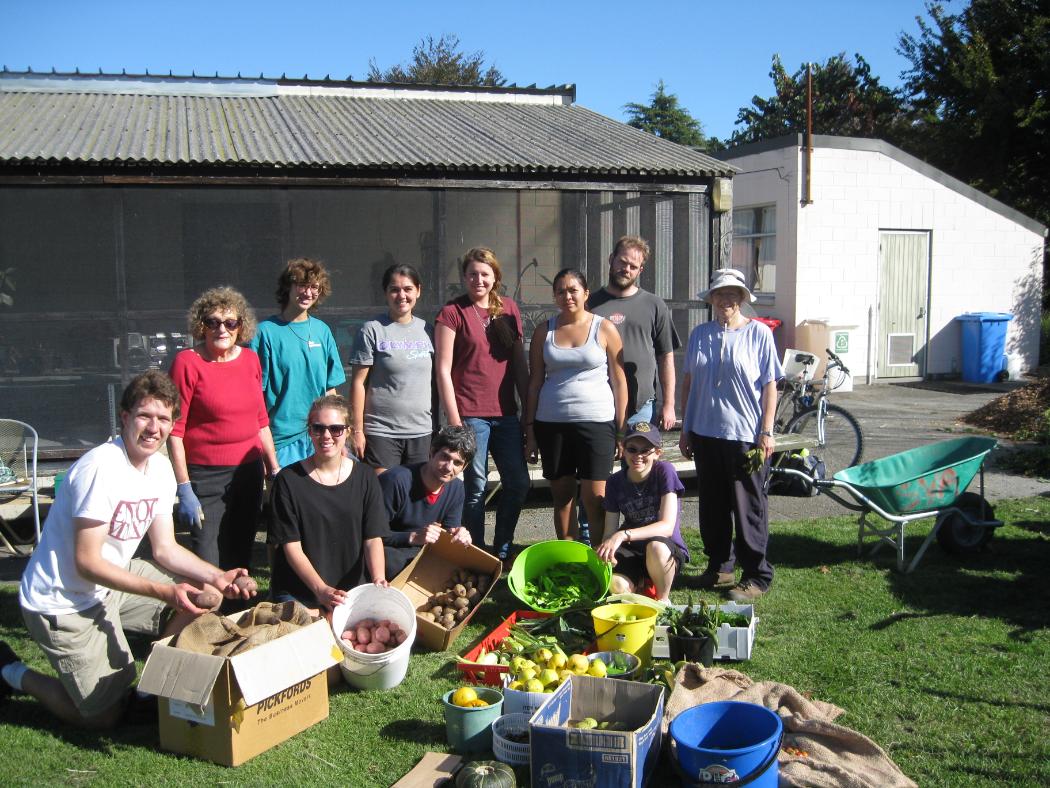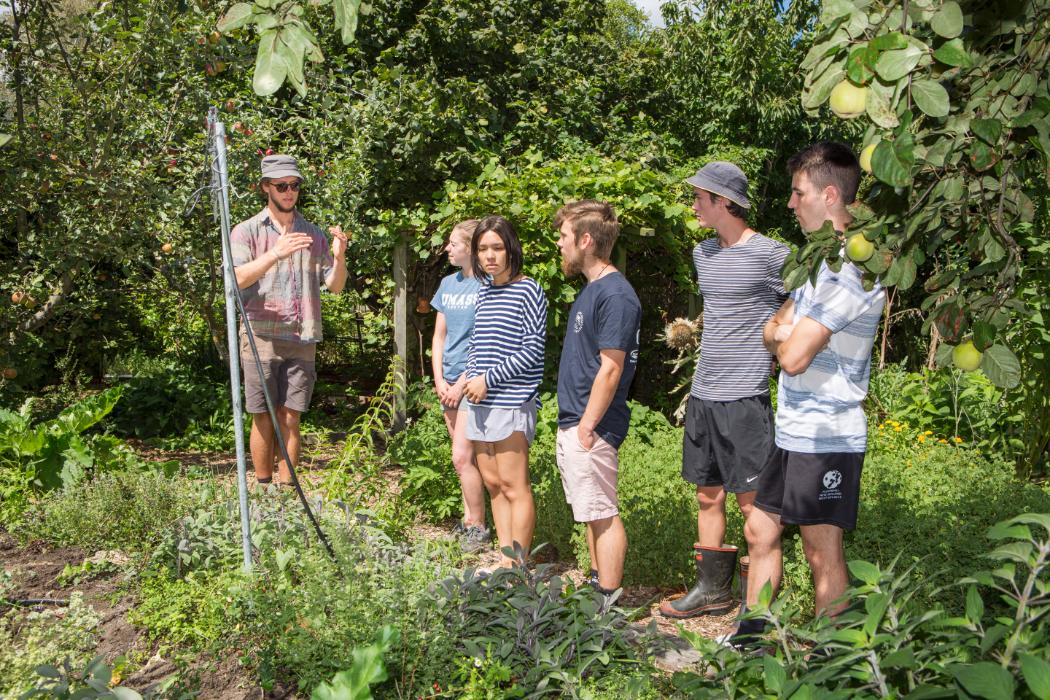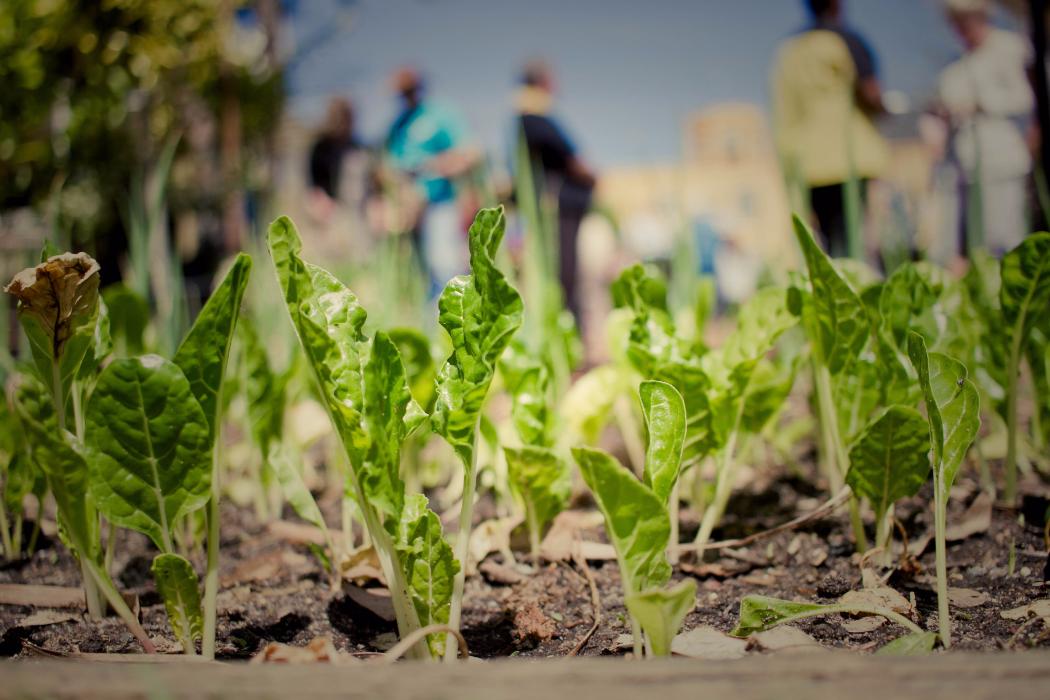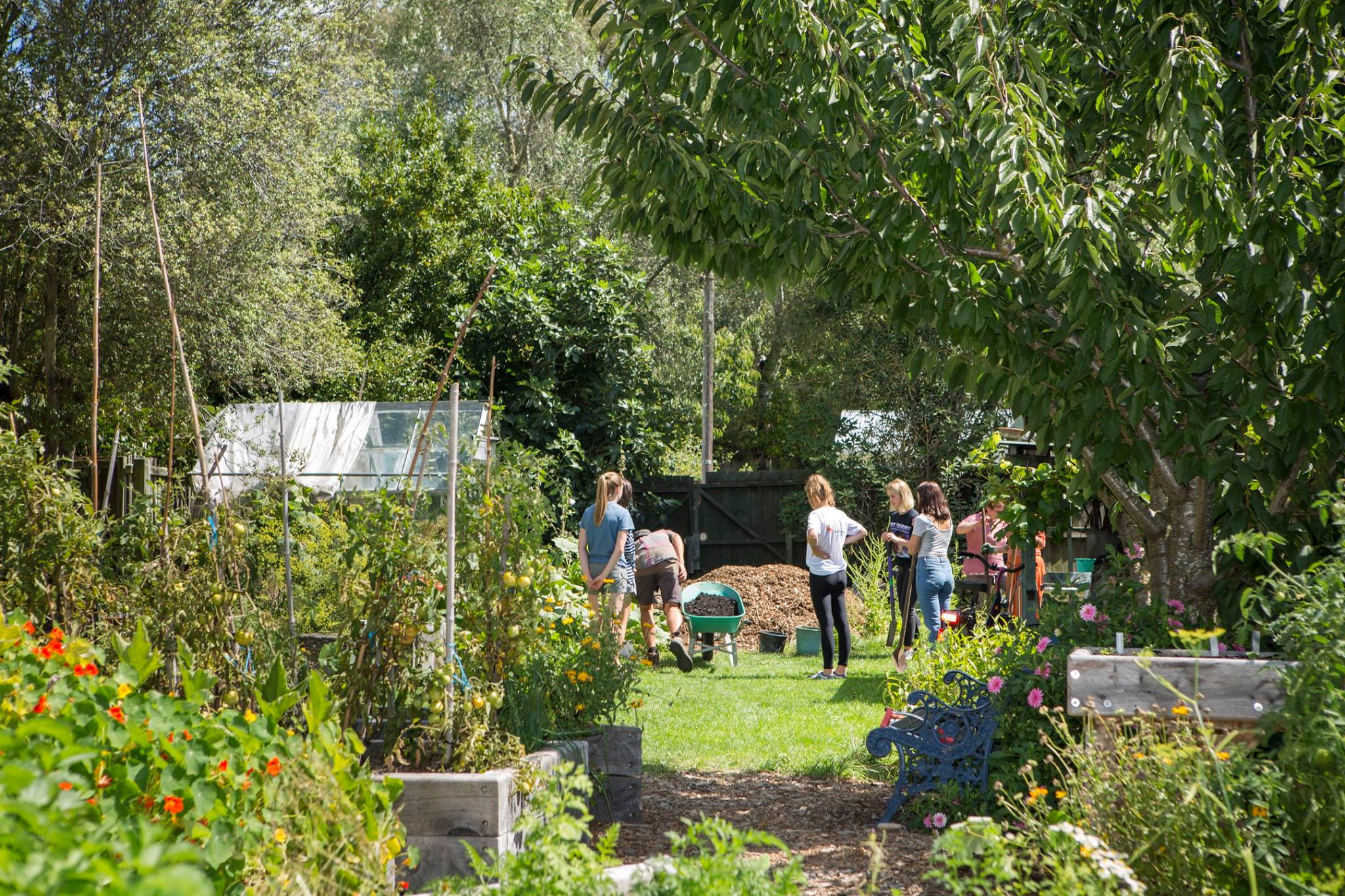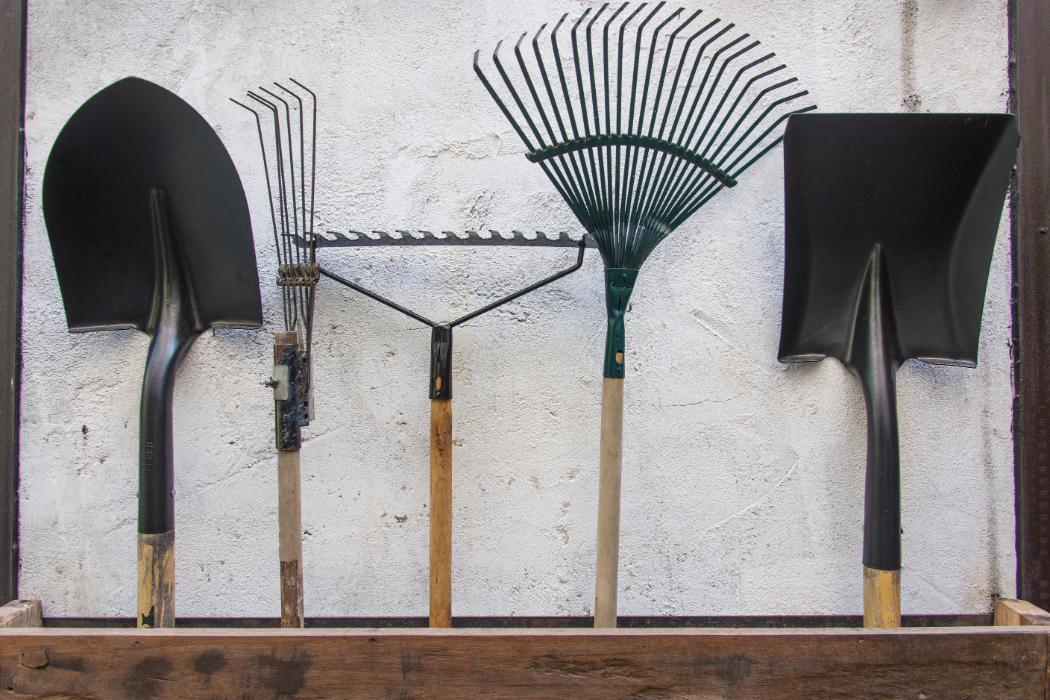
They benefit individuals by giving people access to fresh, organic produce, by promoting physical activity, and by stimulating learning and adding to a person’s knowledge and expertise. Community gardens also have social benefits through promoting community interaction, providing a venue to meet new people and building a sense of community. The campus community gardens are part of about a dozen community gardens in Christchurch.
UC has two community gardens:
- Te Ngaki o Waiutuutu (Waiutuutu Community Garden) based on Ilam campus
- Dovedale Community Garden based on Dovedale campus
Benefits of Community Gardens
Growing your own food is also better than buying it. It reduces the environmental costs associated with transportation and storage, and food will also be fresher and tastier. There is also the satisfaction you get from growing your own produce.
By participating in the community garden you also have a chance to learn about sustainable gardening techniques which you can apply in your own garden at home.
The community garden is an excellent place to put sustainable theory into practice. You learn by doing, and have fun and meet new people at the same time. As an added bonus, you can take your share of the fresh produce harvested that day!
Vision and Mission Statement
The vision of UC's community gardens is "To create an attractive, living campus that is transitioning into a resilient, edible biophilic landscape".
The mission of UC's community gardens is "To nurture a community of people who grow and share food, and use their knowledge to influence campus design and policy".
